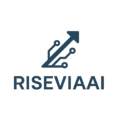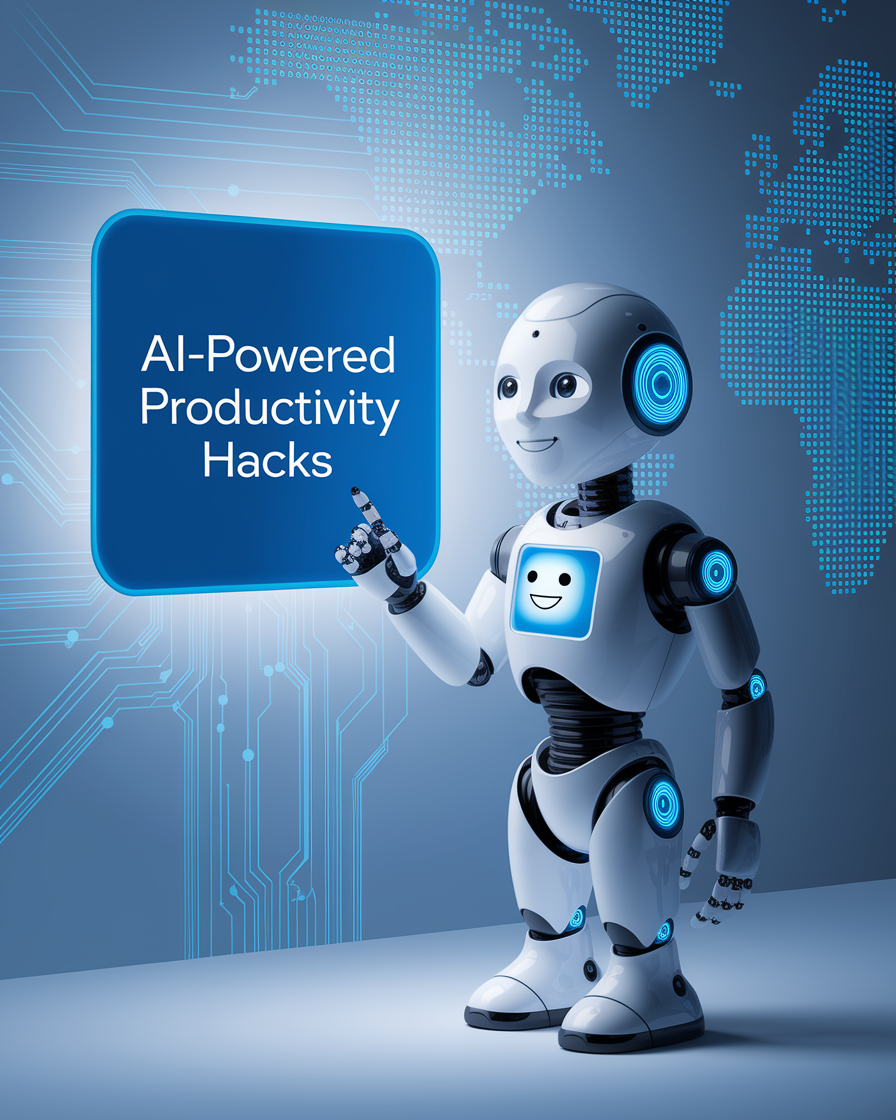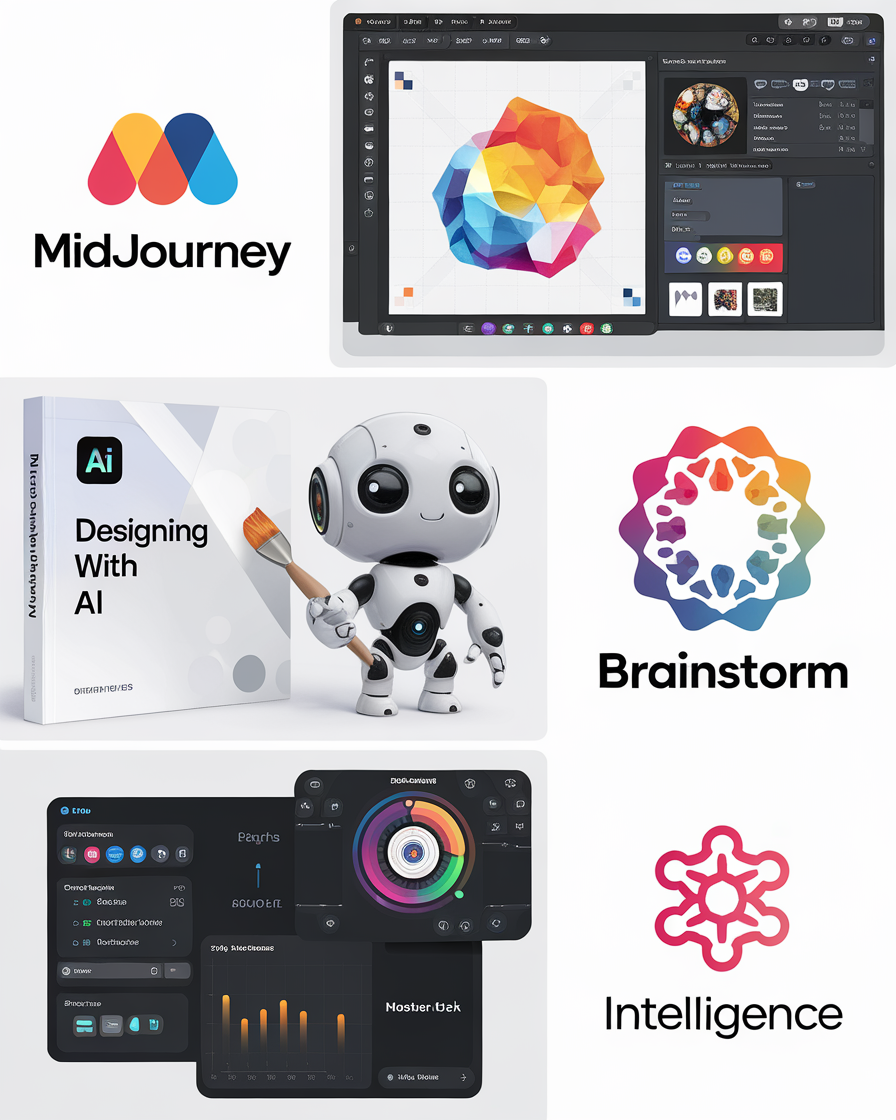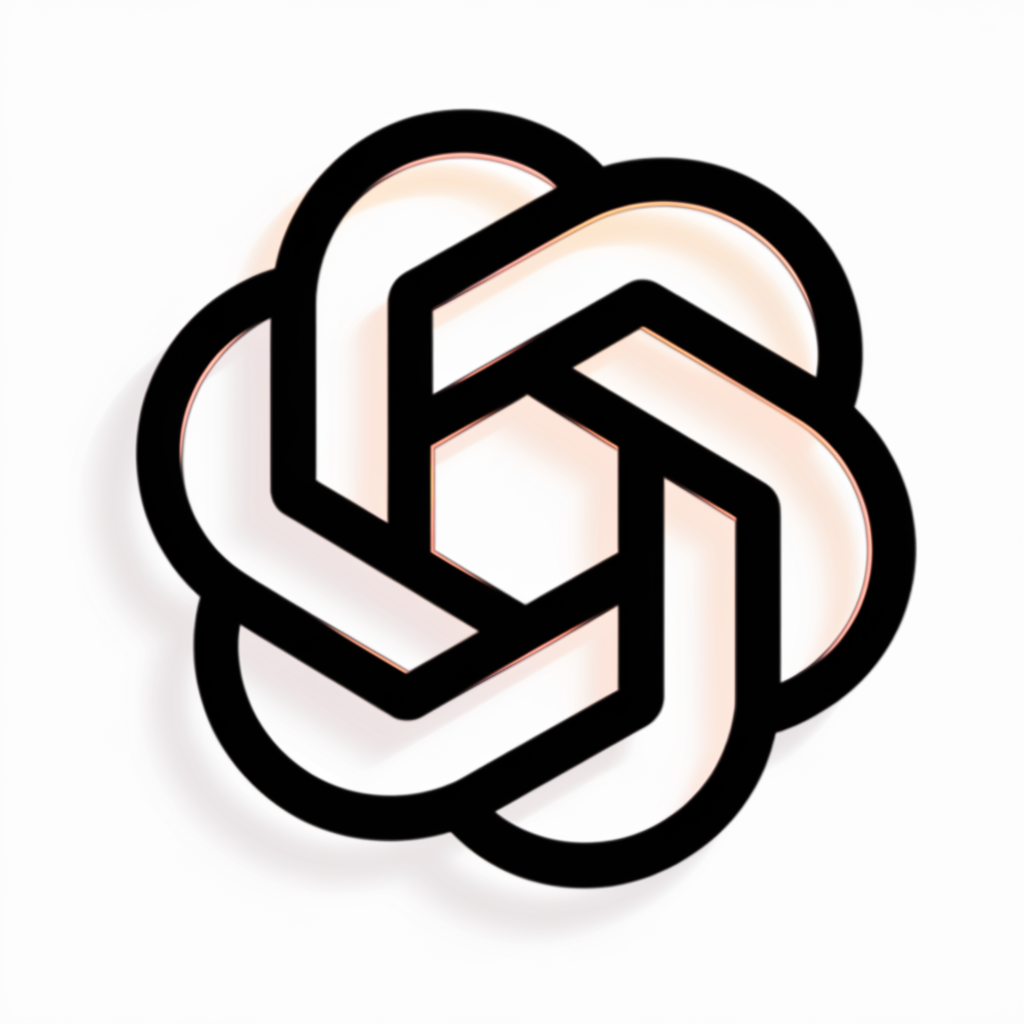Tired of endless to-do lists and the crushing weight of unfinished tasks? Discover how AI can help you beat procrastination and unlock peak productivity.
Introduction
We’ve all been there. Staring at a blank document, an overflowing inbox, or a looming deadline, feeling a magnetic pull towards anything but the task at hand. Procrastination is a universal human experience, but in our increasingly demanding world, it can be a significant barrier to success and well-being. What if there was a powerful ally to help you overcome this persistent habit? Enter Artificial Intelligence. The marriage of AI and procrastination isn’t just a futuristic concept; it’s a rapidly evolving reality, offering innovative solutions to help you reclaim your time and achieve your goals. This article will explore how intelligent technologies can revolutionize your approach to tasks, focus, and overall productivity, transforming you from a habitual procrastinator into a proactive achiever.
Understanding the Roots of Procrastination with AI Insights
Before we dive into the solutions, it’s crucial to understand why we procrastinate. Procrastination isn’t merely laziness; it’s often a complex psychological response to various triggers. AI can play a pivotal role in identifying these underlying causes, offering personalized insights that traditional methods simply can’t.
Common reasons for procrastination include:
- Overwhelm: Large, complex tasks can feel daunting, leading us to postpone starting.
- Fear of Failure/Perfectionism: The pressure to perform perfectly can paralyze us, making it easier to do nothing than risk imperfection.
- Lack of Clarity: Unclear goals or vague task definitions make it difficult to know where to begin.
- Distractions: The constant barrage of notifications, social media, and other digital temptations easily pulls our attention away.
- Lack of Motivation: When a task feels uninteresting or unrewarding, it’s easy to push it off.
- Poor Time Management: Underestimating the time required for tasks or failing to allocate sufficient time can lead to a scramble at the last minute.
AI-powered tools can analyze your digital habits and behavioral patterns to pinpoint your specific procrastination triggers. For instance, an AI productivity tool like RescueTime (https://www.rescuetime.com/) can track your time spent on various applications and websites, providing detailed reports on where your focus truly lies. This data can reveal patterns, such as consistently getting distracted by social media after 3 PM, or delaying work on analytical tasks.
Beyond simple tracking, advanced AI systems are emerging that use behavioral analysis to understand why you procrastinate. AI coaching platforms, for example, can ask questions and interpret your responses to identify emotional triggers like anxiety or perfectionism, offering tailored strategies based on cognitive behavioral therapy (CBT) principles. (https://aidx.ai/p/how-ai-coaching-helps-stop-procrastination/) This personalized approach is a significant leap beyond generic advice, helping you address the root cause of your procrastination.
AI Productivity Tools: Your Digital Accountability Partner
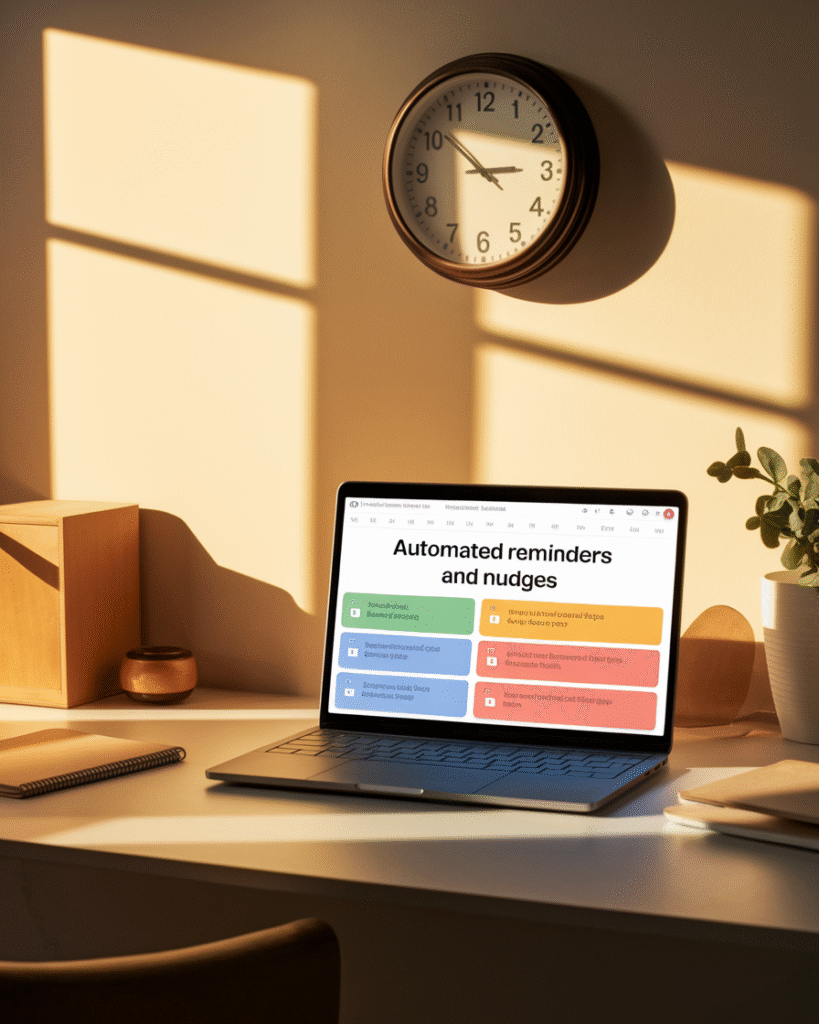


One of the most powerful ways AI productivity tools combat procrastination is by acting as your highly intelligent, ever-present accountability partner. They don’t just remind you; they actively help you structure your day, prioritize tasks, and minimize distractions in a way that adapts to your unique workflow.
Consider the following ways AI can be your ultimate productivity ally:
- Smart Task Prioritization and Planning: AI can analyze your task list, deadlines, and even your historical productivity data to suggest the most optimal order for tackling your work. Tools like Motion (https://www.usemotion.com/) and Reclaim.ai (https://reclaim.ai/) use AI to auto-schedule tasks into your calendar, taking into account your availability, recurring meetings, and even your personal energy levels. This eliminates the decision fatigue often associated with planning, making it easier to simply start. Imagine an AI that knows you’re a morning person for deep work and automatically blocks out that time, pushing less demanding tasks to your afternoon slump.
- Intelligent Scheduling and Time Blocking: Beyond simple to-do lists, AI time management apps can dynamically adjust your schedule. If an unexpected meeting pops up, the AI can intelligently re-arrange your tasks to fit them in, ensuring nothing falls through the cracks. They can even incorporate “buffer” times between tasks to prevent burnout and allow for natural transitions. Check out how tools like Clockwise (https://www.getclockwise.com/) optimize your meeting schedule to create more focus time.
- Distraction Blocking and Focus Enhancement: Digital distractions are a leading cause of procrastination. AI can help create a digital fortress around your work. Apps like Freedom (https://freedom.to/) can block distracting websites and applications across all your devices during designated focus periods. Some AI-powered operating systems and apps can even intelligently silence non-essential notifications during deep work sessions, adapting to your activity to determine what’s truly important.
- Automated Reminders and Nudges: Forget generic hourly reminders. AI can learn your habits and send nudges at the times you’re most likely to procrastinate or when a deadline is approaching critical mass. These reminders can be tailored and adaptive, escalating in intensity if a task remains unaddressed.
By offloading the mental burden of planning, prioritizing, and managing distractions, AI productivity tools free up your cognitive resources to focus on the actual work, making it significantly easier to overcome the urge to procrastinate.
Practical Steps: Beating Procrastination with AI
Ready to put AI and procrastination solutions into action? Here are practical steps and examples of how you can integrate AI into your daily routine to become a procrastination-beating machine:
- Start with a Smart Task Manager:
- Choose your tool: Select an AI-powered task management app like Notion AI (https://www.notion.so/product/ai), Todoist (https://todoist.com/), or ClickUp (https://clickup.com/).
- Input everything: Dump all your tasks, big and small, into the system. Don’t worry about organization yet.
- Let AI prioritize: Use the AI features to help break down large projects into smaller, manageable sub-tasks. Ask it to suggest priorities based on deadlines and estimated effort. For example, in Notion AI, you can simply type “Break down this project into actionable steps” and let it generate a detailed plan.
- Automate Your Schedule:
- Integrate with your calendar: Link your chosen AI time management app (e.g., Motion, Reclaim.ai) with your digital calendar (Google Calendar, Outlook Calendar).
- Define your focus times: Tell the AI when you prefer to do deep work, when you have meetings, and when you need breaks.
- Let AI do the heavy lifting: Allow the AI to automatically schedule your tasks, blocking out time in your calendar. This visual commitment can significantly reduce the likelihood of procrastination.
- Harness AI for Focus:
- Implement distraction blockers: Install browser extensions or apps like Freedom or RescueTime and configure them to block distracting websites during your work hours.
- Utilize AI-generated soundscapes: If background noise distracts you, try AI-powered soundscape generators like Brain.fm (https://www.brain.fm/) or Endel (https://endel.io/) to create focus-enhancing audio environments.
- Smart notifications: Adjust your phone and computer settings to allow AI to manage your notifications, only alerting you to critical information.
- Leverage AI for Idea Generation and Problem Solving:
- Combat mental blocks: If you’re stuck on a task, use AI chatbots like ChatGPT or Gemini to brainstorm ideas, outline concepts, or even help you rephrase difficult sentences. This can quickly overcome the “analysis paralysis” that often leads to procrastination.
- Simulate accountability: While not a human, you can use a chatbot as a “virtual study buddy” or “accountability partner” by prompting it to ask you about your progress at regular intervals. For example, you could prompt ChatGPT: “Act as my accountability coach. Every hour, ask me what I’ve accomplished on [Task Name] and what my next step is.”
- Reflect and Optimize with AI:
- Analyze your patterns: Regularly review the productivity reports from tools like RescueTime. AI can identify patterns in your work habits – what times you’re most productive, what tasks you avoid, and what frequently causes delays.
- Adjust strategies: Use these insights to refine your approach. If the AI shows you consistently procrastinate on writing, perhaps you need to break down writing tasks into smaller chunks or dedicate specific, uninterrupted blocks of time for them.
By actively engaging with these AI productivity tools, you’re not just getting reminders; you’re building a smarter, more resilient approach to your work and personal projects.
FAQ Section
Q1: Can AI truly cure procrastination, or just manage it?
AI can be an incredibly powerful tool for managing and significantly reducing procrastination by addressing its common causes (overwhelm, distraction, poor planning). While it may not “cure” the underlying psychological tendencies in every individual, it provides the structure, insights, and automated support necessary to build healthier habits and develop more proactive behaviors. Think of it as a highly effective assistant and coach, not a magic wand.
Q2: Are there free AI tools available to help with procrastination?
Yes, many excellent AI-powered tools offer free tiers or trials. For example:
- Notion AI: Offers free access with limited AI capabilities, great for basic task management and note-taking.
- Todoist: Has a robust free plan for task management.
- ChatGPT/Gemini: Basic versions of these AI chatbots are free and can be used for brainstorming, outlining, and even simulated accountability.
- RescueTime: Offers a free version with basic time tracking.
While paid versions often unlock more advanced features and integrations, you can definitely start your journey to beat procrastination with AI using free resources.
Q3: How does AI help with time management beyond a regular calendar?
Traditional calendars are passive; they just display what you put in. AI time management apps are active and dynamic. They can:
- Auto-schedule: Intelligently place tasks into your calendar based on priorities, deadlines, and your availability.
- Dynamic adjustment: Automatically reschedule tasks if conflicts arise or priorities change.
- Optimize for focus: Identify and protect blocks of time for deep work, minimizing fragmentation caused by meetings.
- Predictive insights: Analyze past behavior to estimate how long tasks will take and suggest optimal times for different types of work, helping you avoid overcommitment.
This proactive and adaptive nature is what sets AI apart from standard calendar tools.
Q4: Will relying on AI make me less capable of self-management in the long run?
This is a valid concern. While some research suggests an over-reliance on AI can potentially decrease critical thinking or self-reliance in certain contexts (https://www.researchgate.net/publication/388767320_Impact_of_AI_Dependence_on_Procrastination_among_University_Students), the goal of using AI for procrastination is to empower you. By offloading repetitive planning and decision-making, AI frees your mental energy to focus on higher-level tasks, strategic thinking, and creative problem-solving. It’s about working smarter, not becoming dependent. The key is to use AI as a tool to develop better habits and understanding of your own patterns, rather than letting it entirely replace your own agency. Think of it as training wheels – they help you learn to ride, but eventually, you’ll be cycling on your own.
Conclusion
Procrastination, while a deeply ingrained human tendency, is no match for the evolving power of Artificial Intelligence. By embracing AI and procrastination solutions, you’re not just finding quick fixes; you’re fundamentally changing your relationship with tasks, time, and productivity. From intelligent scheduling and hyper-personalized insights to robust distraction blocking and virtual accountability, AI productivity tools offer a comprehensive arsenal to help you reclaim control over your day.
What’s your biggest procrastination challenge? Have you tried any AI tools to help you overcome it? Share your thoughts and experiences in the comments below! And if you found this article helpful, consider sharing it with someone who could benefit from a little AI-powered motivation. Explore our related posts for more tips on maximizing your productivity in the digital age.
For More Information You can Read Our Latest Posts Here https://riseviaai.com/blog/
